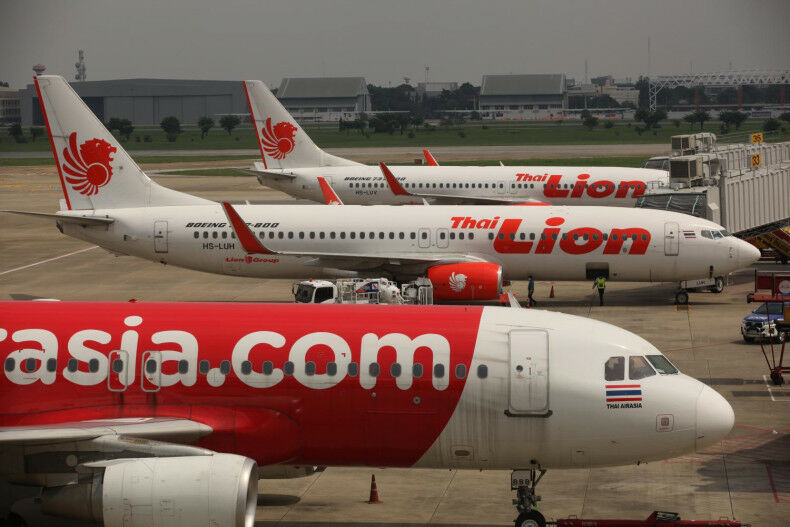Thai AirAsia opposes airfare reductions due to operational costs

Thai AirAsia weighed in on the issue of high airfares which prompted calls for price reductions, arguing that slashing ceiling prices is not a feasible solution due to increased operational costs borne by airlines since the onset of the pandemic.
The airline’s Chief Executive, Santisuk Klongchaiya, suggested increasing flights during the Songkran festival as a potential strategy to decrease average fares.
Santisuk explained that costs of operation, including fuel and maintenance, have surged since the pandemic hit. Furthermore, the aircraft supply chain has yet to recover to its pre-pandemic state.
He stated that it’s typical for airfares to increase during the Songkran holiday due to high demand. The Civil Aviation Authority of Thailand (CAAT) regulates these airfares, setting ceiling prices for each route.
Thai AirAsia plans to keep prices reasonable, adjusting them based on each route’s seasonality and passenger demand. As a response to CAAT’s policy, the airline proposes to add more late-night and early-morning flights to help lower average fares.
Santisuk argued against the implementation of a minimum price for airlines, citing that such a measure contradicts free market principles and could negatively affect consumer benefits from airlines’ promotions.
The Thai AirAsia CEO also stated that Thai carriers would not revert to price wars as past experiences have proven this to not yield positive operational results. He suggested that the government could assist in reducing passenger costs by adjusting the jet fuel tax rate.
Setting standard prices
On the same note, Tansita Akrarittipirom, director of commercial operations at Thai AirAsia, highlighted the necessity for low-fare promotions in the Thai market. She noted that the majority of the public does not have high disposable income, but travel remains a desired activity.
Thai AirAsia has set a target of 15 to 20% revenue growth this year, aiming to expand its fleet to 60 aircraft with a seat capacity of 23.3 million. The airline has plans to add three A321neo and one A320ceo jets to its fleet, with the intention to operate 33 domestic and 58 international routes to 18 countries this year, reported Bangkok Post.
Sarun Benjanirat, Deputy Director-General of CAAT, mentioned that the agency is considering a new ceiling price that will accommodate all airlines. The price will be set for each route and adjusted based on each airline’s services. Factors such as fluctuating fuel price are to be considered in setting an appropriate rate. The implementation of these new rules is expected in the second or third quarter of this year.
Latest Thailand News
Follow The Thaiger on Google News:


























